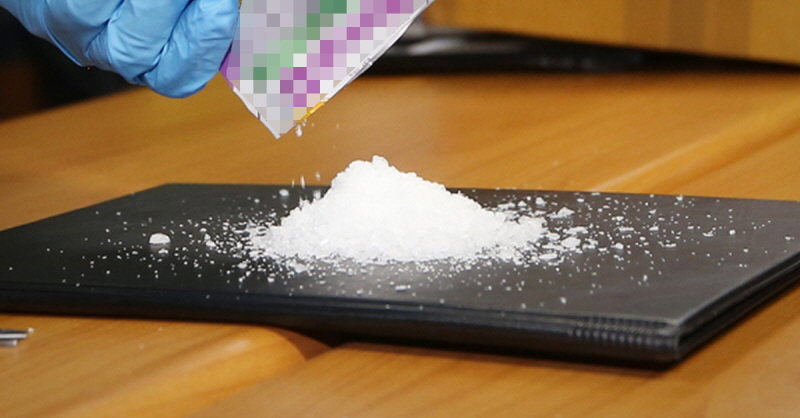In North Korea’s rural regions, an increasing number of farmers are cultivating opium as a means of livelihood. This shift is driven by a growing demand for opium, as methamphetamine has become scarce due to difficulties in importing raw materials.
The widespread use of drugs in North Korea began with the state cultivating and manufacturing opium and methamphetamine to generate foreign currency, Radio Free Asia (RFA) reported on September 9.
However, as the country’s free healthcare system collapsed, these drugs became high-profit commodities in the domestic market.

Methamphetamine, used as a treatment by both students and adults, is now being replaced by opium, according to recent reports.
A source from South Hamgyong Province, speaking anonymously to RFA, revealed that “many farmers in Kowon County grow opium to sell on the black market. In my mountain village, five out of ten households cultivate opium.”
The source added that while some families grow opium for emergency medical purposes, more than half of the farms cultivate it for sale.
While the North Korean authorities crack down on large-scale opium cultivation, they reportedly turn a blind eye to small-scale production for medical use in plots of around 66 square meters, recognizing the dire situation of residents unable to access medical care.
The source also mentioned that the decline in methamphetamine availability began last year and has continued this year, leading to a surge in opium cultivation. This shortage is attributed to a halt in the smuggling of raw materials from China, which are essential for methamphetamine production.
Even after the COVID-19 lockdowns were lifted, border smuggling remained tightly controlled, drastically reducing the domestic production of methamphetamine.
Key ingredients for methamphetamine production, such as phenylacetic acid and ephedrine, are no longer easily accessible, leading to an increase in opium consumption among the North Korean population.
“There’s a growing belief that injecting opium can lift the spirits of even those who were once overwhelmed with despair,” the source reported.
A second source from South Pyongan Province also confirmed the trend, stating, “In Sinyang County, opium is now used instead of methamphetamine to treat headaches and diarrhea, and many farmers have started cultivating it.”
The source explained that opium farming has become a viable alternative for farmers whose businesses were disrupted by the pandemic, with many now following suit after seeing the profits.
Opium cultivation is seen as more profitable than traditional crops. “By planting opium instead of corn, farmers can earn several times more,” the source noted.
In regions like Pyongan, opium sap is harvested by scoring the flower buds with a knife, and both the dried sap and flower stalks are sold.
The surge in opium use is largely due to its affordability. A gram of opium sap is sold for 5,000 North Korean won (approximately $0.31), and a kilogram of dried opium stalks goes for 1,000 won ($0.06). These prices are significantly lower than methamphetamine, which costs over three times as much at 18,000 won ($1.12) per gram.
The disparity in prices is linked to production costs. Opium cultivation requires minimal investment—each poppy fruit contains thousands of seeds, and with just a few fruits, a farmer can sow a field. In contrast, methamphetamine production requires at least $3,000 in raw materials to produce around 200 grams, making it much more expensive.
It has become common for North Korean households to keep opium or methamphetamine on hand as emergency treatments for acute conditions like headaches or diarrhea, given the difficulties of accessing medical care.
Opium sap is typically processed into pills, while dried flower stalks are brewed for consumption. Wealthier officials are known to stockpile methamphetamine as a precaution against strokes and other serious conditions.
BY YOUNGNAM KIM [kim.youngnam@koreadaily.com]




